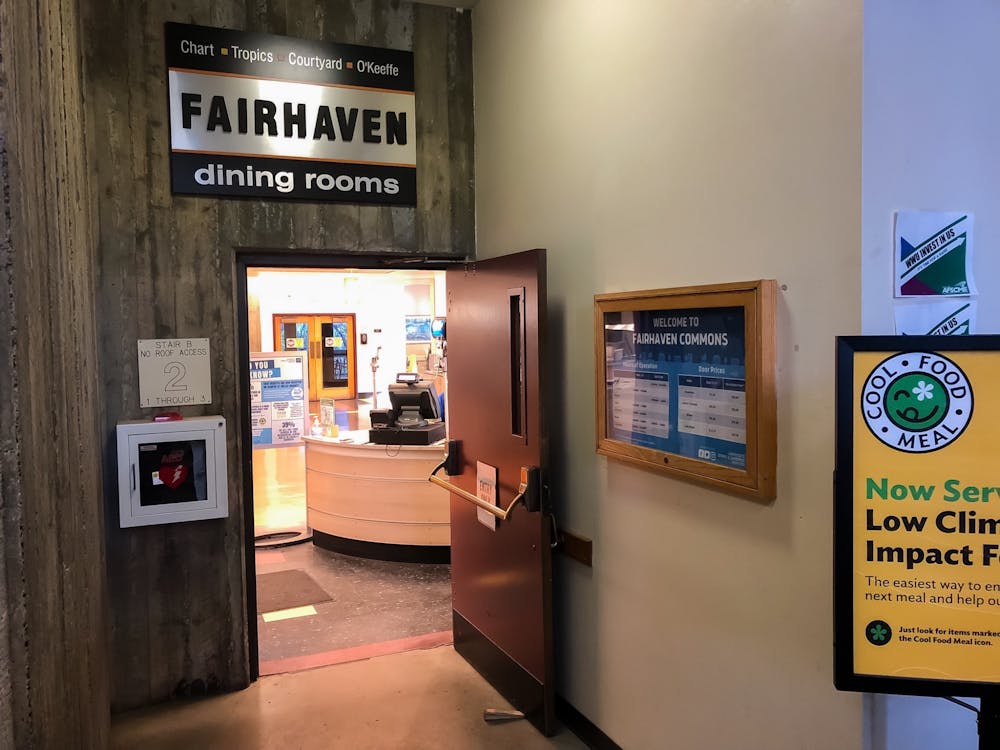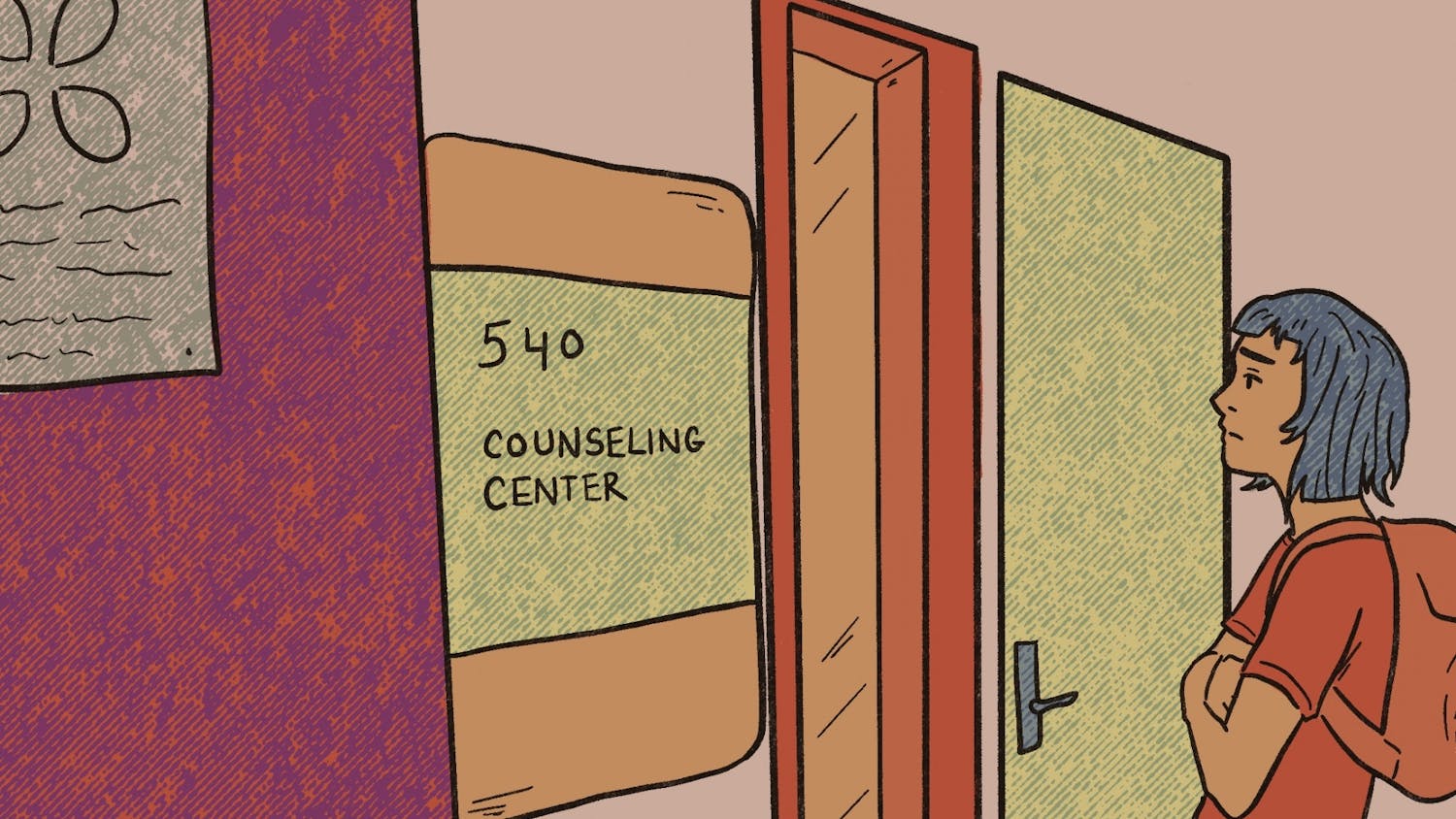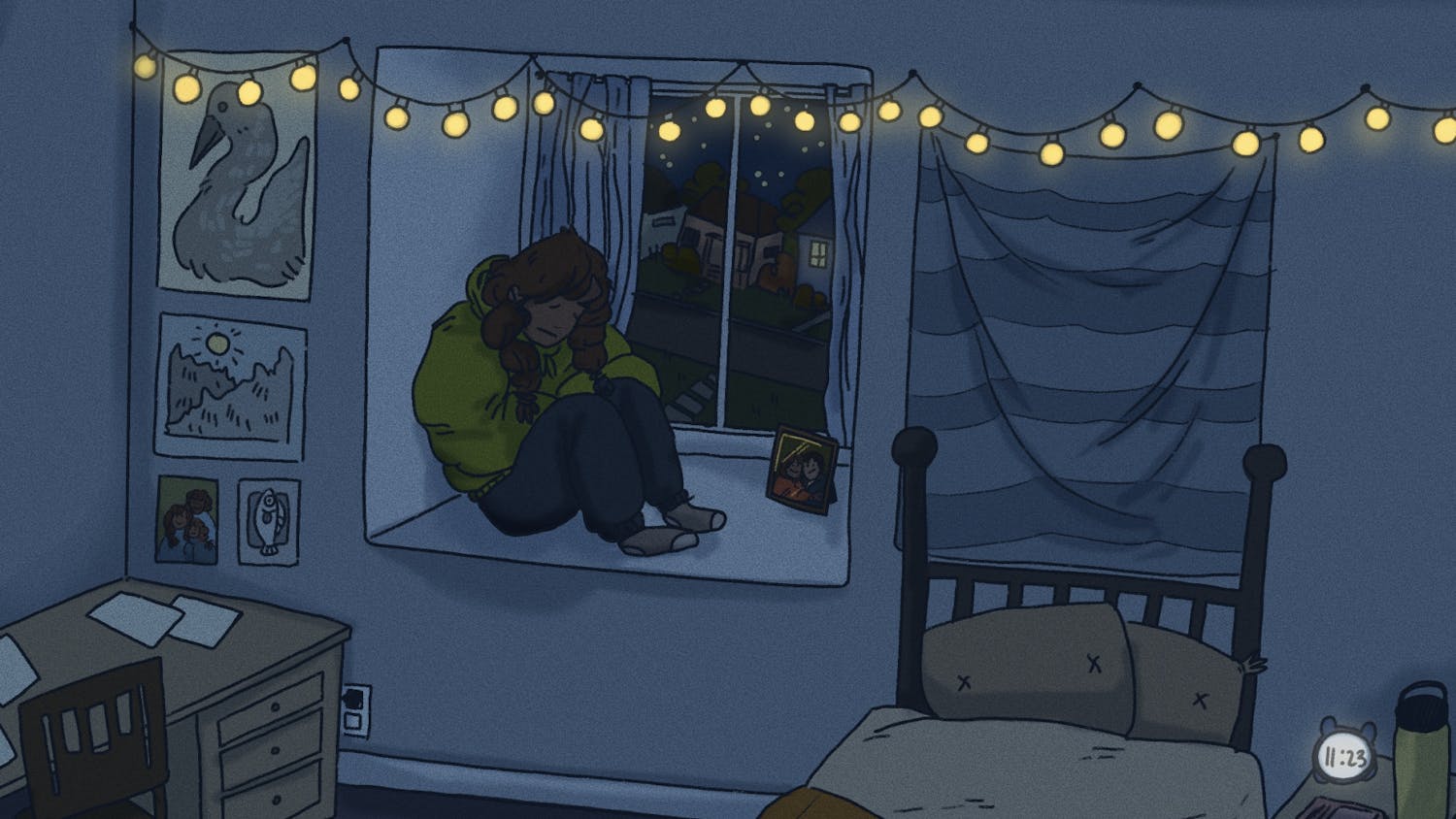Swipe Out Hunger, a program that allows Western Washington University students in need of extra meal swipes to request free meals, has been suspended until at least the end of winter quarter.
Due to increased demand in requests that exceeds available donations, the program stopped accepting requests in early February.
“Demand was outstripping the supply of meals,"said Michael Sledge, Western’s executive director of the Office of Student Life. "As the end of the quarter approaches, we’ll continue to re-evaluate our decision based on additional donations.”
In fall 2022, 192 students requested 2,521 meals. In just the first month of students returning for winter quarter this year, 193 students had already requested 1,973 meals, Sledge said.
“We’re not sure why there’s been such a sudden increase,” Sledge said.
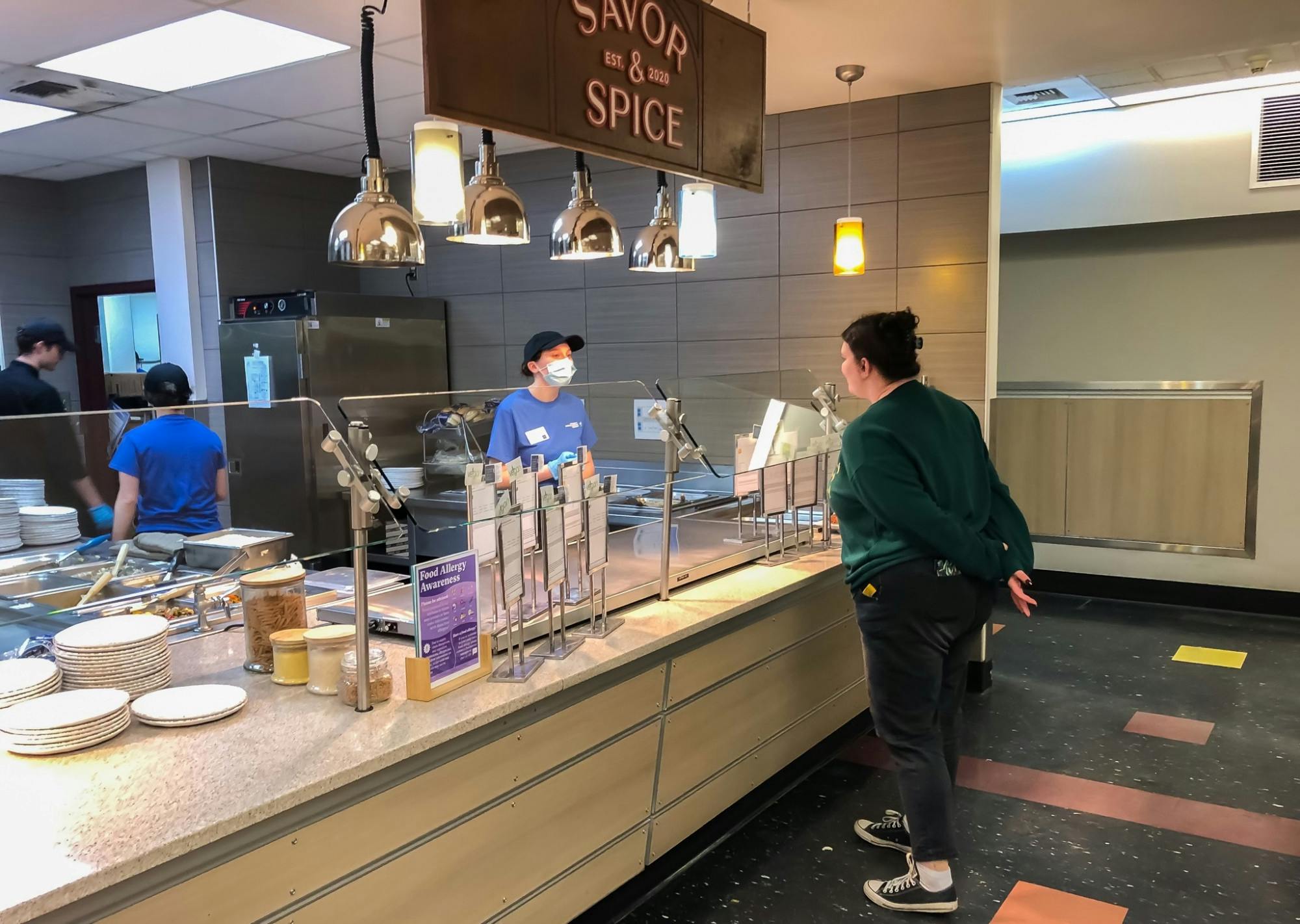
A Western student asks the dining hall employee what food options are available for dinner at the Fairhaven dining hall at Western Washington University in Bellingham, Wash., on Feb. 23, 2023. Students can either pay or use meal swipes to enter the dining halls on campus. // Photo by Miles Tennant
This increase in food insecurity matches what has been seen across the rest of Bellingham, according to the Bellingham Food Bank.
“Visits to the food bank have more than doubled in the past year,” said Stephanie Sisson, Bellingham Food Bank’s outreach coordinator and a Western alumna.
The food bank serves 16% of Whatcom County and recorded 437,979 visits from people in need throughout 2022, Sisson said.
This increase is mostly due to larger systemic issues that have led to higher inflation rates, causing food prices to rise, Sisson said.
Additionally, the Supplemental Nutrition Assistance Program from the U.S. Department of Agriculture, which provides low-income people with additional funds for food, will be cut back at the end of February, meaning the average person will receive $90 a month less, according to the Center on Budget and Policy Priorities.
Sisson experienced food insecurity while she was a student at Western.
“I was very food insecure. My food budget was $80 a month,” Sisson said. “If one thing happened like I had to go to a doctor, then I didn't have a food budget for the whole month.”
Sisson relied on earlier student-run iterations of the Swipe Out Hunger program.
“Just because there is increased demand, it doesn't mean we need to panic,” Sisson said. “Stopping something just because you can't do all of it defeats the purpose of starting it in the first place.”
Western’s Students for a Self-Operated Dining System club, more commonly known as Shred the Contract, has continuously supported the program.
“Students who are the most nutrition insecure in our community are now being shut out of a program that was set up specifically for them,” said Sean Hakala, an active club member.
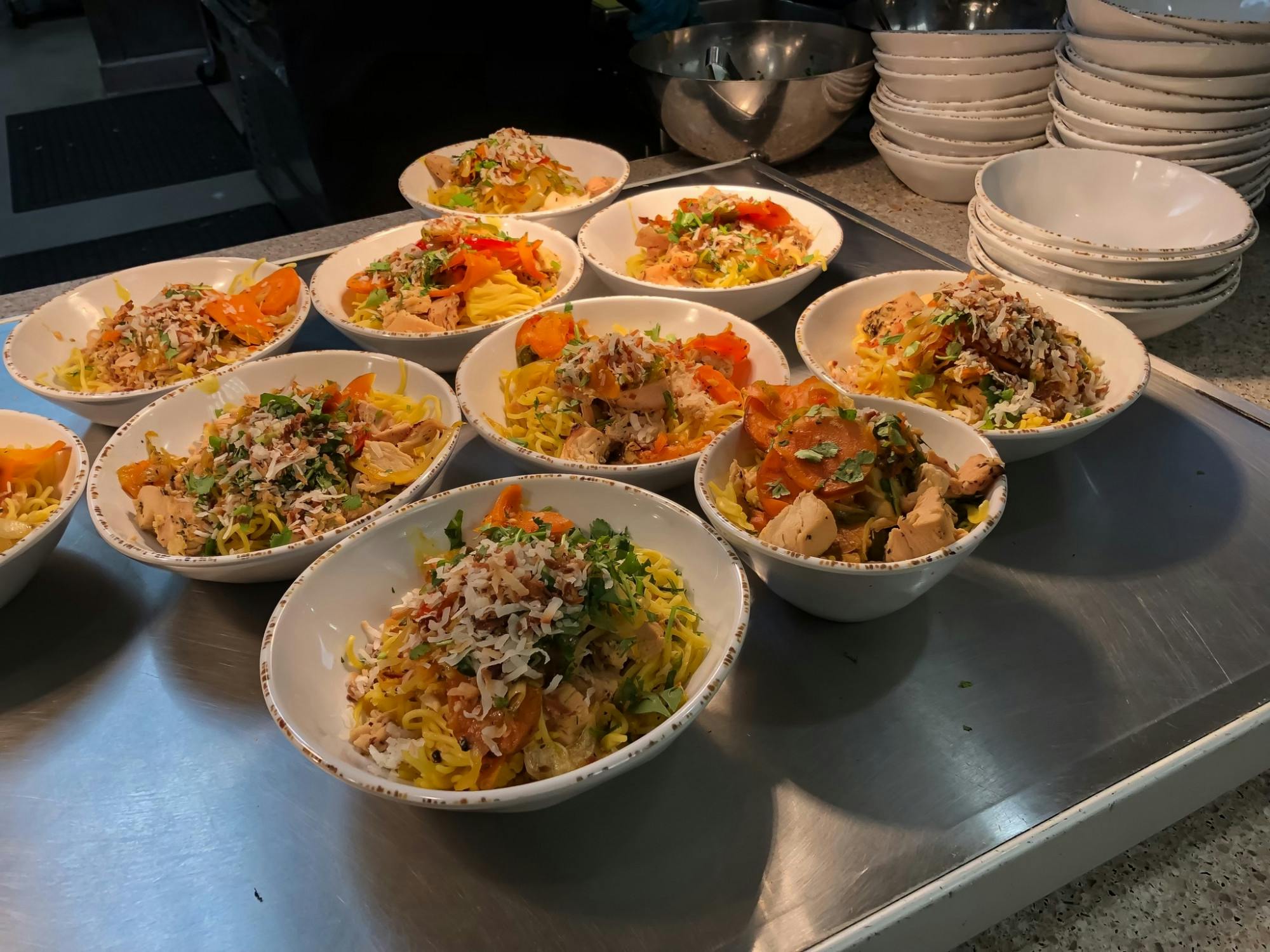
A selection of freshly built dishes for students to choose from sits out at dinner in the Fairhaven Commons at Western Washington University in Bellingham, Wash., on Feb. 23, 2023. Once inside the dining hall, students are free to have as many servings as they would like. // Photo by Miles Tennant
The Swipe Out Hunger program is part of a national chain of programs started by students at UCLA in 2010.
Support for each campus program comes mainly from financial partnerships with companies like Chegg and Aramark, said Janelle Raymundo, the director of communications at Swipe Out Hunger.
Western began working with the program in spring 2019, adding its name to the list of 550 other U.S. college campuses running the program. In the first quarter, over 1,000 meals were donated to more than 200 students, according to Western’s Swipe Out Hunger webpage.
Additional options for students in need of food support can be found on the Office of Student Life’s Basic Needs website.
Sledge said the goal for the program is to reopen at the start of spring quarter.
Despite requests for meals being suspended, the program accepted donations up until March 3, which will be available for students to request once the program reopens. Donations can be made online or in person at the entrance to any dining hall on campus.
Miles Tennant (he/him) is a campus news reporter for The Front this quarter. He is a second-year planning to major in the news/editorial path of the journalism department. When not reporting, he enjoys playing soccer and spending time in the gym.
You can contact him @milestennant.thefront@gmail.com


